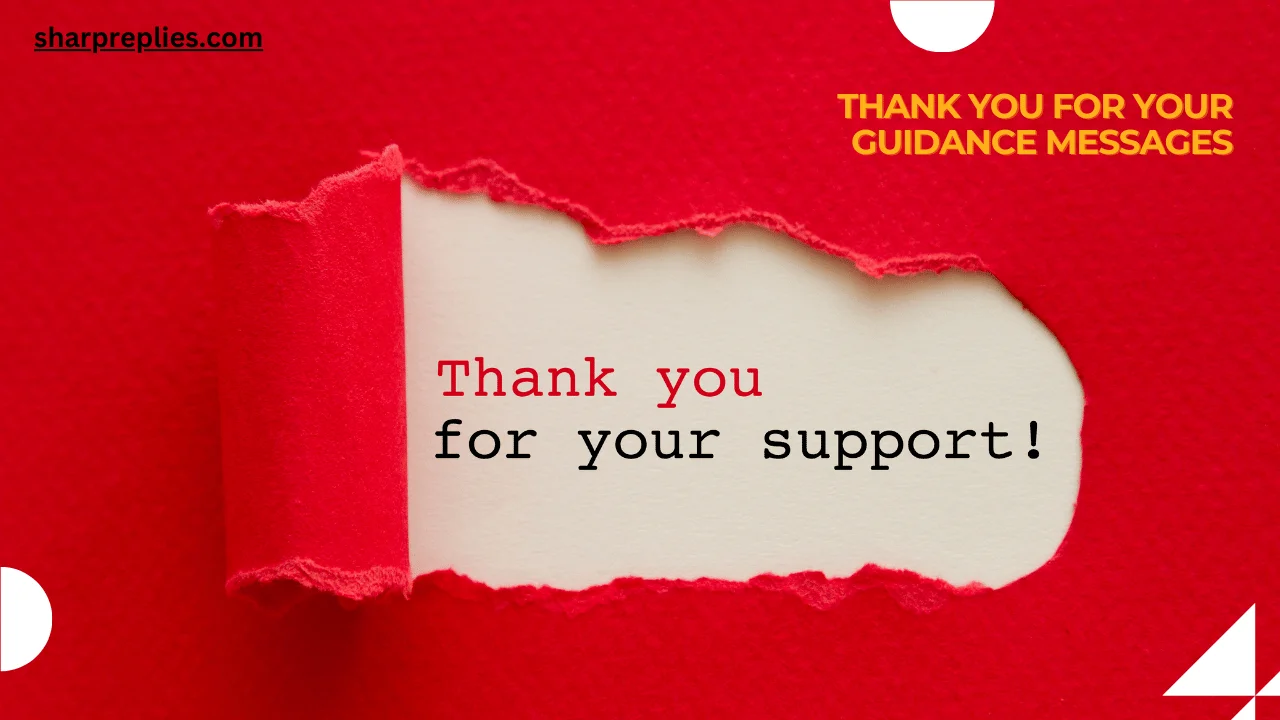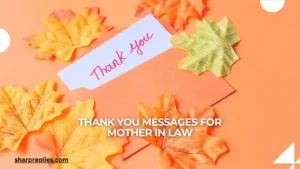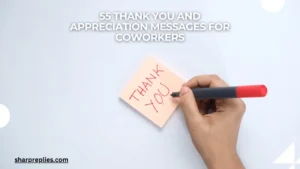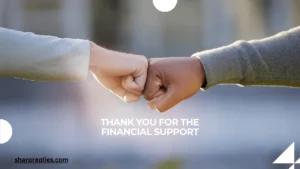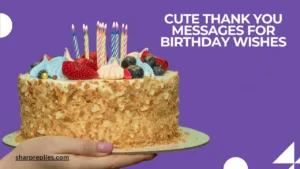In a world that thrives on communication, expressing gratitude holds a powerful place in nurturing relationships, both personal and professional.
A thank-you-for-your-guidance message can go a long way in acknowledging someone’s support, advice, or mentorship. Whether it’s a colleague, friend, mentor, or family member, these messages can serve as reminders of the positive impact one person can have on another’s life. But why are such messages so important?
Beyond the simple words of appreciation, they symbolize respect, acknowledgment, and the fostering of meaningful connections. If you’ve ever received guidance that changed the course of your decisions or inspired growth, you know how invaluable it feels to be recognized.
This article delves into the art of crafting the perfect thank-you message for guidance, exploring why it matters, how to make it effective, and the different contexts in which such messages can make a significant impact.
Contents
- 1 The Importance of Thank-You-for-Your-Guidance Messages
- 2 Why Guidance is Worth Thanking For
- 3 Crafting the Perfect Thank-You Message for Guidance
- 4 Different Contexts for Thank-You Messages for Guidance
- 5 The Long-Term Impact of Expressing Gratitude for Guidance
- 6 FAQ’s
- 6.0.1 Why is it important to send a thank-you-for-your-guidance message?
- 6.0.2 How should I address a thank-you message in a professional setting?
- 6.0.3 Can a thank-you message be too long or too short?
- 6.0.4 What’s the best way to express gratitude for guidance in a personal relationship?
- 6.0.5 Is it necessary to send a thank-you message every time someone offers guidance?
- 6.0.6 What are some examples of thank-you messages for professional guidance?
The Importance of Thank-You-for-Your-Guidance Messages
At its core, expressing gratitude is a reflection of emotional intelligence. When you thank someone for their guidance, you’re not only acknowledging their help but also validating their efforts.
These messages serve as a tool to strengthen the bond between you and the individual. Whether in a professional environment where a manager or colleague has offered advice or in a personal setting where a friend has steered you in the right direction, gratitude fosters positive relationships.
Sending a thoughtful thank-you message can help you stand out in a professional setting, especially if it’s from a mentor or someone who has played a pivotal role in your career development.
It’s a subtle yet profound way to show that you value their wisdom, helping to create a lasting impression. In a personal context, it signals deep appreciation, enhancing trust and mutual respect.
Why Guidance is Worth Thanking For
Guidance doesn’t always come in the form of advice. Sometimes, it’s simply a listening ear or a gentle nudge in the right direction.
We often take for granted the people who help us through difficult decisions or offer insight during uncertain times. What makes guidance truly invaluable is the perspective it offers.
In many instances, guidance comes from people with more experience, making it a unique opportunity to learn from their successes and failures. A well-delivered thank-you message acknowledges the time and energy spent on helping you.
It reflects not just appreciation for the advice but also for the personal investment someone has made in your growth. This makes the expression of thanks all the more meaningful, as it recognizes both the act and the individual.
Crafting the Perfect Thank-You Message for Guidance
While the sentiment of thanks is essential, how you communicate it is equally important. The key to a meaningful thank-you message lies in sincerity and personalization. Start by clearly acknowledging the specific guidance you received.
Avoid generic phrases, and instead highlight the impact that guidance had on you. A simple “Thank you for your help” can fall flat without context.
Additionally, tone is important. In a professional setting, a formal yet warm tone is best, while in a personal context, you can afford a more relaxed approach.
Personalize your message by mentioning how the advice has affected you. Did it help you make a difficult decision? Did it inspire you to take a leap of faith? The more specific you can be, the more meaningful your gratitude will appear.
Different Contexts for Thank-You Messages for Guidance
There’s no one-size-fits-all when it comes to crafting a thank-you message. The context plays a significant role in shaping both the message and the tone. Let’s explore a few common contexts in which guidance is often offered:
- Professional guidance: A mentor or manager who offers career advice can greatly influence your professional journey. Here, a formal thank-you message expressing appreciation for their insight and how it has shaped your career path is appropriate.
- Educational guidance: Teachers and professors provide guidance on academic matters. A thank-you message can acknowledge the time and effort they’ve spent in helping you succeed, as well as the positive impact their advice has had on your studies.
- Personal guidance: In personal relationships, a friend or family member may offer guidance on emotional or personal matters. These messages can be more heartfelt, with a touch of warmth that shows the deep appreciation for their role in your life.
The Long-Term Impact of Expressing Gratitude for Guidance
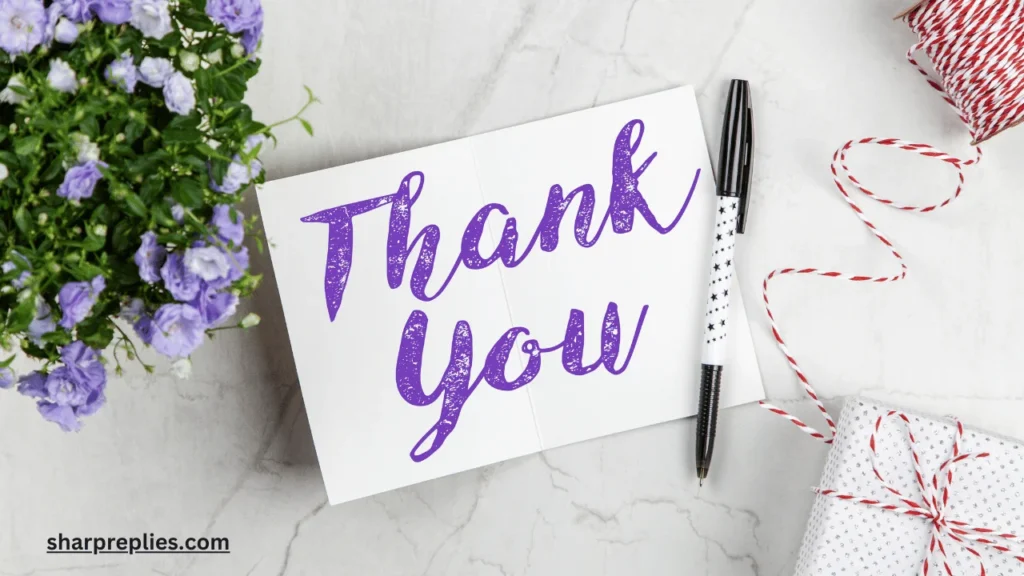
Thanking someone for their guidance doesn’t just build goodwill in the present; it can have long-term benefits.
When you express gratitude, you’re fostering an environment of mutual respect and encouragement. This helps to cultivate deeper, more meaningful relationships, whether in personal or professional settings.
Moreover, the act of thanking someone can have a ripple effect. It encourages the person being thanked to continue offering guidance to others. In a professional context, this creates a cycle of mentorship and growth.
On a personal level, expressing thanks strengthens the bond, creating a support system that endures. In the end, the impact of your gratitude goes far beyond a single message—it nurtures a continuous cycle of giving and receiving guidance.
Conclusion
In a world often focused on achievement and progress, taking a moment to pause and thank someone for their guidance can make all the difference.
It’s not just about politeness; it’s about recognizing the invaluable role others play in our lives. A thank-you-for-your-guidance message has the power to strengthen relationships, create lasting impressions, and foster continued growth.
So, the next time someone offers their wisdom, take the time to acknowledge it. A simple, sincere message can turn a fleeting moment into a foundation for ongoing success and connection.
FAQ’s
Why is it important to send a thank-you-for-your-guidance message?
Sending a thank-you message acknowledges the time and effort someone has invested in helping you. It strengthens relationships and shows your appreciation for their support, fostering goodwill and respect.
How should I address a thank-you message in a professional setting?
In a professional setting, it’s best to maintain a formal tone, while still making the message warm and sincere. Mention specific advice or guidance received and express how it positively impacted you.
Can a thank-you message be too long or too short?
A thank-you message should be concise yet meaningful. Keep it brief, focusing on the key points of gratitude, but avoid being overly brief to the point of sounding insincere.
What’s the best way to express gratitude for guidance in a personal relationship?
In personal relationships, the tone can be more casual and heartfelt. Focus on how the guidance helped you emotionally or practically, and emphasize the personal connection.
Is it necessary to send a thank-you message every time someone offers guidance?
While it’s not mandatory to send a thank-you message every single time, sending one for significant guidance is a great practice to show appreciation and strengthen your relationship.
What are some examples of thank-you messages for professional guidance?
“Thank you for your guidance on the project. Your insights have been invaluable and have helped me make more informed decisions. I appreciate your time and effort.”

